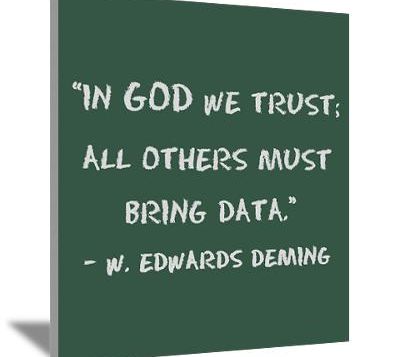

There are two famous stories going around and around my head nowadays. It is certain that most of the ones reading this article know this story. Stories of grasshopper and elephant. They put the grasshopper in a jar and covered it with a cap, grasshopper hit itself to the cap hoping to get out for many days, and long afterwards it gave up bounding. Such that it did not try to get out even after the cap is opened. Similar story is told for elephant as well. Elephant tries to get rid of the chain put on its foot while it is a baby. But elephant was too small and the chain was strong. Time passes, elephant grows, and chain becomes small however elephant does not try to break it. Yet, it has tried a lot on time but has not obtained any results.
Let it not be misunderstood, these examples remind me of a scientist. Nobel-winner Ivan Petrovich Pavlov, who is the oldest of eleven siblings, had four more children after the death of his two children and who had constantly lived through financial troubles. Famous Russian physiologist had conducted many studies in experimental psychology that affected many of the next scientists. Similar to the examples set out above, Pavlov has the following statement; “Brain interprets all the exterior information packages according to its presumptions in order to protect itself from the experienced trauma and after this process, an individual “believes” or “knows” a new truth.” Sargant, who is the British follower of the works of Pavlov had conducted some studies on ‘brain washing’ as confirming these discourses. In ‘brain washing’ studies, Sargant had worked with patients who experienced trauma. Even though there was not a memory left on these patients about the trauma they experienced, they had given very strong emotional reactions when they are exposed to the experiences which they may relate to this incident.
Of course, our traumas and what we ‘believe’ and ‘know’ afterwards are much more innocent and not pathological cases that the scientists work on. However brain’s instinct of protecting itself and protecting its existing comfort zone is based on the same origin if you ask me. Believing and knowing are doubtlessly phenomenon that an individual needs to maintain its existence within society, however beyond owning this knowledge and belief as a jacket “questioning” will serve as adapting and developing it and maturing it along with our changing personality and environment.
Only with this manner we will be able to realize our power and break the chains.
While performing a duty as a Black Belt candidate in 2011, we were also carrying out the editorship of Lean Six Sigma magazine with my beloved workmate Estimable Erdinç Kulbey. I hereby add the article of my other beloved workmate Estimable Derya Ceylan that took place on the 10th issue of this magazine, to the end of my article as she has summarized the matter very well with her own speech.
Seeing the truth with data
There are many good reasons that data and truth underlie Lean Six Sigma. Do you want to avoid unnecessary discussions and conflicts that damage teamwork? Then you should set as a rule for people to support their ideas by showing evidence and truth. Do you want to improve the processes? You should gather data about variation, errors and process flow. Do you want to know who your customer is and what he/she wants? You should collect data.
An important part of Lean Six Sigma projects is comprised of measuring and analyzing. But the actual change in the operations will occur by measuring as much as possible in our daily work lives and using these data apart from the improvement projects. Thus, by detecting how high our variability is at which points, you may take the enhancement opportunities.
Analyzing the variation helps a manager to comprehend in depth the actual performance and processes of the works it manages. In the past – and even now- institutions used to measure and define their works with the term ‘average’. Average cost, average cycle time etc. However, averages indeed prevent seeing problems by hiding variation. Data should be evaluated separately.
Data are commonly taken from information systems nowadays. We should not allow this application to decrease our observing frequency although it provides great convenience in our lives. Number one requirement for measurement is ‘observation ability. 'Gemba' is a highly important application in Japan. Gemba means; being in the area where work is conducted (on scene) and observing. Observing and meeting with the ones that carries out the work enable you to reach accurate information.
There are various resources to provide data in an institution. The most important thing to be considered is the accurate data given by selected resource or resource at your possession and its ability to represent the processes, product and service you want to measure. Mistake done commonly is to wait for data to approve our estimations. When surprise results of measurements are seen, data is ignored by assuming as ‘Impossible!’ This indeed means to ignore the truth. In such cases, we should get into the habit of reaching the root cause by going deeper. For years many institutions have used the data for a single purpose; to award or punish the employees. Difference of the companies where Lean Six Sigma is applied is that the data is used to monitor learning and process performance.
It is not easy to gain data collecting habit, because we are used to decide in line with our feelings without collecting data. We should re-train ourselves in a way to stop before deciding and think whether there is current data to be searched or whether it is necessary to collect new data. Teaching ourselves to ask a basic question such as ‘what does data tell us?’ will form a big difference in enhancement studies.
Register to our newsletter in order to be aware of our announcements and news.
